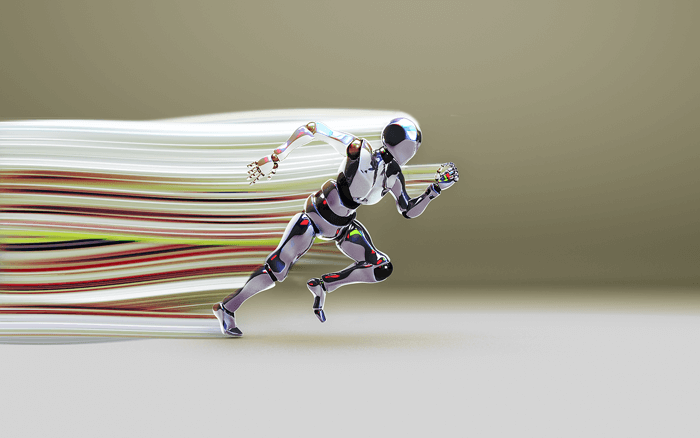AI, Chatbots, and Content in Technical Writing
 ClickHelp Teamin Technology on 11/16/2018 — 3 minute read
ClickHelp Teamin Technology on 11/16/2018 — 3 minute read ClickHelp Teamin Technology on 11/16/2018 — 3 minute read
ClickHelp Teamin Technology on 11/16/2018 — 3 minute read

How is emerging technology affecting technical writers, and should they be concerned at this point about their jobs? Let’s try to answer these questions in this blog post.
Now, we are experiencing a new wave of the opinion shift on AI, neural networks and how they fit into our lives. From the nerve-wracking apocalyptic scenarios, we returned to a more pragmatic, practical point of view and the question arose – will bots and AI take our jobs anytime soon?
If you take a look at one of the biggest gaming projects of 2018, Detroit: Become Human, you will see that one of the main ideas there is that robots might actually be better than us. Robots not only lack the cruelty of human nature, but they are also simply better at performing tasks. Or, are they?
Actually, in many cases, they are. The truth is, AI is transforming our world right now. Some areas of employment have already changed drastically. For example, translation. If we are not talking about translating fiction where “human touch” is required, translation has turned into editing of machine-translated texts for the most part. What about user manuals?

No, not in the near future at least. You see, technical writing is not as generic as it may seem to an outsider. With product/service updates, customers face new challenges and one of the main tasks of a technical writer is seeing these difficulties through beforehand and communicating to a fellow human being the solution in the most efficient manner.
Customer-oriented goals should be set for each help topic. At this point in time, bots are seen more like mediators between technical documentation and customers rather than a replacement for technical writers. Siri and Alexa are the “living” proof that Amazon and Google share this point of view.
So, support teams should probably be more concerned as they are basically the mediators between users and technical documentation now. Bots and virtual assistants are being developed with the following thought in mind: it should be impossible to tell whether you are dealing with a real person or artificial intelligence. For users, the experience of communicating with a bot is supposed to be different from going through a troubleshooter and become more like talking to a human.
Instead of fearing to lose your job as a technical writing specialist, look on the bright side – we can use this technology for our benefit.

One of the immediate benefits technical writing can get from AI-powered services is the smart text check. With applications like Grammarly, spell checking was taken to a new level. This field will keep improving, but even now we can clearly see that modern spell checkers are capable of more than fixing typos. Due to AI, they become more context-oriented and, therefore, can provide better writing assistance.
Another great addition to a tech writer’s toolset is a readability score service. Here, machine learning is used to analyze written text and provide feedback about its readability. Complexity of sentences, the text’s structure, terms and abbreviation, and many other factors that influence how easy it is to understand and digest your writing, are the main focus of readability score apps. Refer to this post to learn how you can successfully use readability scores in technical writing.
And, one more great thing that machine learning can bring to the table is smarter and faster search engines. AI enables search engines to understand the context better, so keywords’ importance decreases. For relevant search results to show up, help topics don’t have to be stuffed with redundant keywords anymore. This will also save technical writers a lot of time – searchability won’t require anything but relatable and useful content.
People fear the unknown. This gets creepier when yesterday’s science fiction suddenly becomes reality. Although with the progress we keep making it is possible that sooner or later artificial intelligence will play a more important role in help authoring, it is clear that it will still require humans to analyze, set the goals, and control the whole process. We are not talking about the disappearance of technical writing, we are talking more so about its transformation.
Good luck with your technical writing!
ClickHelp Team
Author, host and deliver documentation across platforms and devices
Get monthly digest on technical writing, UX and web design, overviews of useful free resources and much more.
"*" indicates required fields